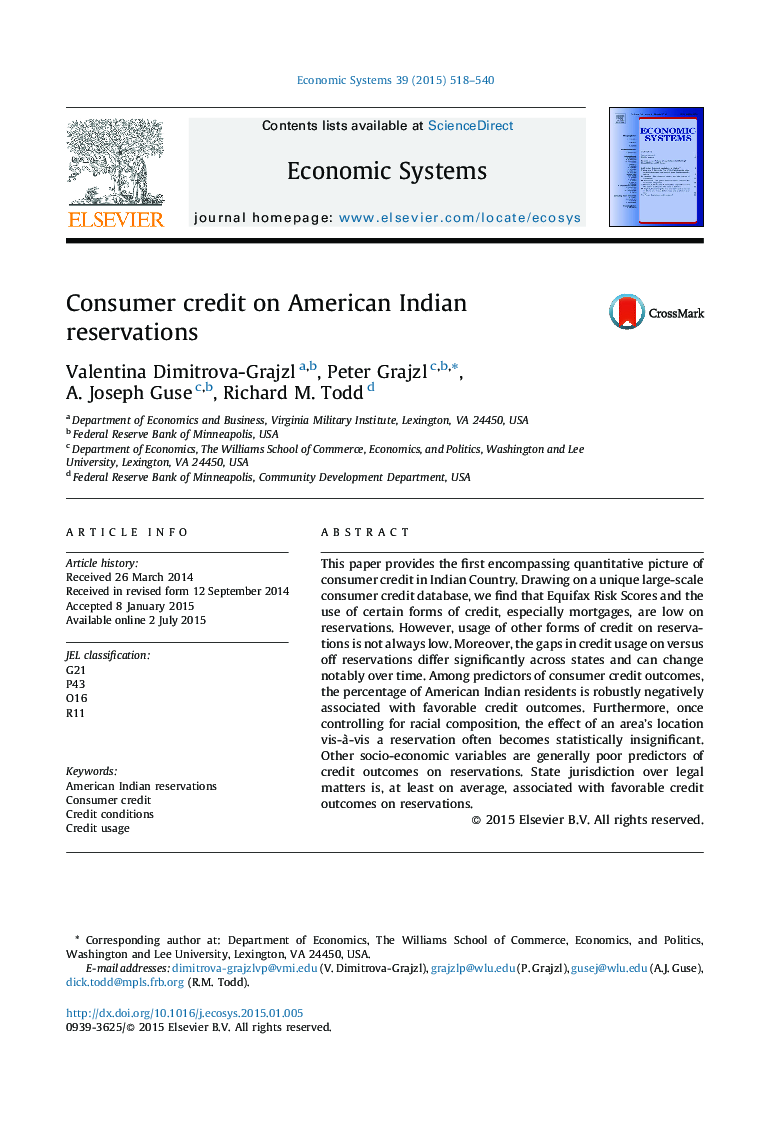| Article ID | Journal | Published Year | Pages | File Type |
|---|---|---|---|---|
| 5056294 | Economic Systems | 2015 | 23 Pages |
Abstract
This paper provides the first encompassing quantitative picture of consumer credit in Indian Country. Drawing on a unique large-scale consumer credit database, we find that Equifax Risk Scores and the use of certain forms of credit, especially mortgages, are low on reservations. However, usage of other forms of credit on reservations is not always low. Moreover, the gaps in credit usage on versus off reservations differ significantly across states and can change notably over time. Among predictors of consumer credit outcomes, the percentage of American Indian residents is robustly negatively associated with favorable credit outcomes. Furthermore, once controlling for racial composition, the effect of an area's location vis-Ã -vis a reservation often becomes statistically insignificant. Other socio-economic variables are generally poor predictors of credit outcomes on reservations. State jurisdiction over legal matters is, at least on average, associated with favorable credit outcomes on reservations.
Keywords
Related Topics
Social Sciences and Humanities
Economics, Econometrics and Finance
Economics and Econometrics
Authors
Valentina Dimitrova-Grajzl, Peter Grajzl, A. Joseph Guse, Richard M. Todd,
